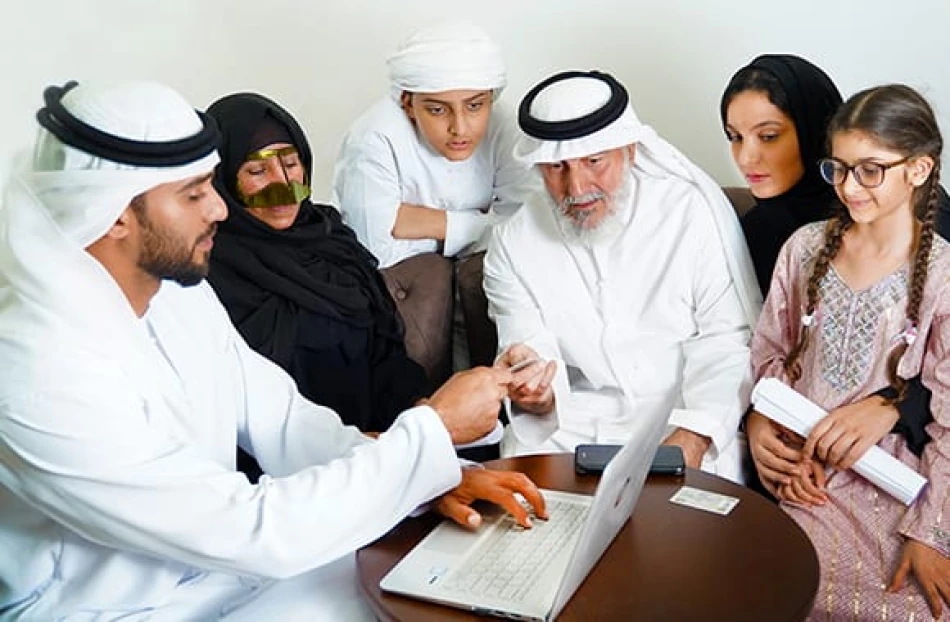
Abu Dhabi Unveils Specialized Housing Units Under 'Burkutna' Initiative for Vulnerable Groups
Abu Dhabi Pioneers Family-Centered Elder Care with New Housing Initiative
Abu Dhabi has launched a groundbreaking housing service that allows adult children to obtain permits for specialized residential units within their homes to care for elderly parents. The initiative, part of the "Barkatna" program launched by UAE President Sheikh Mohamed bin Zayed Al Nahyan, represents a strategic shift toward family-centered elder care that could serve as a model for aging societies worldwide.
Breaking Down Institutional Care Barriers
The Family Development Foundation, in collaboration with Abu Dhabi's Department of Community Development and Department of Municipalities and Transport, unveiled detailed requirements for the residential unit certification service. The program specifically targets citizens over 60 years old, aligning with the UAE's National Policy for Senior Citizens.
Maryam Mohammed Al Rumaithi, Director General of the Family Development Foundation, emphasized that caring for senior citizens constitutes a strategic priority. The service enables primary caregivers to obtain residential units for their parents within their own homes, following approved safety standards and spatial requirements set by municipal authorities.
Strict Eligibility Framework
The program maintains rigorous standards to ensure quality care. Applicants must be UAE citizens holding family data records issued by Abu Dhabi, with permanent residency in the emirate. Crucially, only first-degree relatives—sons or daughters—who serve as primary caregivers and live permanently with their elderly parents qualify for the permits.
Regional Context and Global Implications
This initiative positions Abu Dhabi ahead of regional peers in addressing demographic transitions. While countries like Japan and South Korea grapple with aging populations through institutional solutions, the UAE is pioneering a family-integrated approach that maintains cultural values while meeting modern care standards.
The program arrives as Gulf states face rapidly changing demographics. The UAE's expatriate-heavy population is aging, and Emirati families increasingly seek alternatives to traditional extended family arrangements disrupted by urbanization and economic mobility.
Technical Standards Meet Family Values
Dr. Salem Al Kaabi, Director General of Operations at the Department of Municipalities and Transport, highlighted the technical rigor behind the initiative. The department has streamlined regulatory procedures while maintaining strict safety standards, appropriate space allocation, and accessibility requirements.
This balance between regulatory compliance and family flexibility represents a sophisticated approach to elder care policy. Unlike purely market-driven solutions in Western countries or state-dominated systems elsewhere, Abu Dhabi is creating a hybrid model that leverages family bonds while ensuring professional standards.
Economic and Social Impact
The initiative carries significant economic implications beyond individual families. By reducing pressure on institutional care facilities, the program could lower public healthcare costs while creating new opportunities in home modification, medical equipment, and specialized services sectors.
For real estate markets, the program may drive demand for larger residential units and properties suitable for multi-generational living. Construction companies and interior designers specializing in accessible design could see increased business as families adapt their homes to meet certification requirements.
Setting Regional Standards
Abu Dhabi's systematic approach to family-centered elder care could influence policy development across the Gulf Cooperation Council. As neighboring emirates and countries observe the program's implementation, successful outcomes may accelerate similar initiatives region-wide.
The program's emphasis on maintaining family connections while ensuring professional care standards offers a template for societies seeking to preserve traditional values within modern governance frameworks. This model becomes increasingly relevant as global populations age and governments seek sustainable, culturally appropriate care solutions.
Most Viewed News

 Sara Khaled
Sara Khaled






